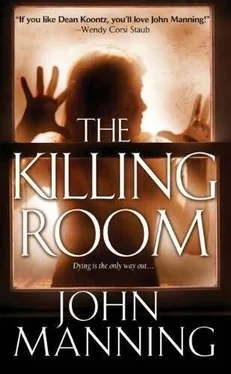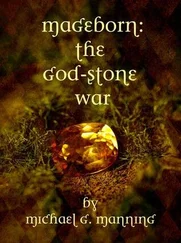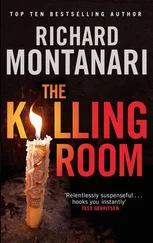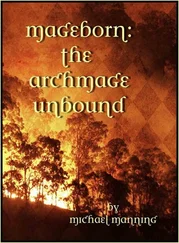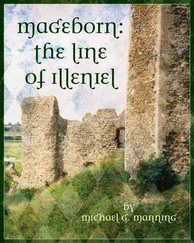“Will it tell us the father’s name?” he asked as he began turning the pages in the old dusty volume.
“Let’s pray,” Carolyn said.
But there was no page 785.
“That can’t be,” Douglas said. “Wait a minute.” He turned back a page. “Page 783, with 784 on the back.” He gulped. “Then it’s page 787, with 788 on the back.”
“Look,” Carolyn said, her voice betraying her disappointment. “You can see there once was a page here, but it’s been torn out.”
Indeed, in the gutter of the book, there was a faint remnant of a torn page.
“Who tore it out?” Douglas asked. “And why?”
Carolyn made a face. “We might not be able to answer those questions just yet, but we can maybe find out when.”
She rang the little bell on the counter, and the clerk came back out from her office.
“I’m sorry to disturb you,” Carolyn said, “but I have a question. When was this computerized index compiled?”
“I think it was 1990,” she said. “I can look for the exact date if that would help.”
“It would,” Carolyn said. “Tremendously.”
The clerk flipped open a ledger she kept behind the counter. “Yes, it was done in the summer of 1990. It was the first year birth records were opened for general research. Now, I don’t like to pry, but why does that fact matter?”
“Oh, I just wanted to see whether previous researchers had access to this material,” Carolyn explained.
The clerk smiled. She had white hair and blue cat’s-eye glasses. “I’m a genealogist myself,” she said. “I’ve traced my family all the way back to the May-flower, and then for at least eleven generations in England.”
“Terrific,” Carolyn said.
“What family name are you researching?” the clerk asked.
“My family,” Douglas said. “The Youngs.”
“Oh!” The clerk’s face lit up. “Such an illustrious history! I remember Howard Young himself coming in here at one point to research the family.”
Carolyn and Douglas exchanged looks. “Did he now?” Carolyn asked.
“Yes, indeed. In fact, it was about the time that index was prepared. I remember him using it. He was very grateful for it, said it facilitated his research so much.”
“I’m sure it did,” Carolyn said.
They thanked the clerk and headed back out into the corridor of the town hall.
“What does it mean?” Douglas asked.
“I think I know now what Dr. Fifer found,” Carolyn said.
Douglas didn’t understand. “Dr. Fifer? What’s he got to do with this?”
“Until 1990, no other researcher would have been able to find Beatrice’s baby because the records weren’t open. But in the summer of that year they were opened and an index was made-just at the point Dr. Fifer was doing his research. So he found the birth record! I think that was what he was so excited about.”
“So what happened to the birth record after that?”
Carolyn smiled. “Don’t you see? Your uncle fired Dr. Fifer, destroyed his notes, then went to the town hall and tore out the birth record himself.”
Douglas didn’t want to believe it. “Why would Uncle Howie do such a thing?”
“I don’t know why.” Carolyn admitted.
“I mean, he wants this curse to end. He would do anything to end it. He’s spent millions of dollars trying to end it.” His voice cracked. “He wouldn’t do anything that might keep that room’s power alive.”
“For now, let’s give him the benefit of the doubt,” Carolyn said. “Maybe he tore out the record for a good reason.”
Douglas shook his head. “What do we do know?”
Carolyn sighed. “I wish I knew. We’re at a dead end. I had hoped to find some information, some clue, that might give us an upper hand in dealing with the force in that room. But we found nothing.”
She reached into her pocket and withdrew the small amethyst on the gold chain that Diana had sent her.
“For now, this is our only hope,” she said.
She started to cry. Douglas wrapped his arms around her.
“I love you, Carolyn,” he whispered in her ear.
And he meant it. Never before had he meant anything as much.
They gathered in the parlor, as always. A fire was blazing, as always. And according to those who’d been part of the lottery before, the thunderstorm that was raging outside was a part of the tradition as well. “Always,” said Philip Young as he carefully wrote the names of the family on slips of paper and dropped them into a wooden box. “There’s always been thunder and lightning whenever the lottery has been held.”
Carolyn’s heart was in her throat. She had failed. Failed utterly. The family had assembled; the lottery was taking place. Despite all her efforts, someone would spend the night in that room. Mr. Young wasn’t blaming her. In fact, when they spoke about an hour earlier, he had seemed optimistic, grateful even, that Carolyn had discovered the amulet that Diana had promised would protect them. Carolyn wanted to believe in its power, but the memory of Kip’s failure ten years ago remained in her mind. He, too, had thought it was safe. But he had been proven terribly wrong. So Carolyn clutched the amulet tightly in her hands, hoping for the best, wanting to believe. She was prepared to slip it around the neck of whomever’s name was drawn. And though she knew it wasn’t right, she was praying that the name drawn from the box would be anyone but Douglas.
Carolyn’s eyes glanced around the room as the family members filed in. I can’t think this way, she said, feeling terribly guilty as Dean Young entered with his wife. He has two little children asleep upstairs. How can I hope it will be him, or anyone else, instead of Douglas?
But she did.
She couldn’t deny that part of her would exult, would shout a private, inward cheer, if the name drawn was not that of the man she loved.
She’d been unable to reply to Douglas’s declaration that he loved her that day at the town hall. She’d simply been unable to form the words. The pain and trauma left over from David was still too real and too fresh. But it was more than that, Carolyn thought. How can I tell him I love him if I might lose him?
But that was all the more reason to express how she felt.
The next into the room was Chelsea, her face calm, her body language poised and graceful. How can she not be terrified? Carolyn wondered. Her brother, Ryan, too, sauntering in now, winking at his sister. Are they really so stoic? The two of them took a seat near the fire, not far from their father, who held the box of names.
Then in hobbled old Mr. Young, helped along by Paula. His face was a mask of pain, his old features twisted like the bark of a knotty tree.
Finally came Douglas. His eyes met Carolyn’s as soon as he walked into the room. She felt as if she might cry again. She averted her eyes in time.
“All right,” Mr. Young said, his voice frail and week. “Once more we gather for our terrible duty.”
He stood, visibly trembling, addressing them all. A flash of lightning suddenly lit up the room, followed by a deep reverberation of thunder.
“Eighty years ago I stood here among a different group of people. Your grandfathers and great-grandfathers. My father stood in the place I now occupy, a position not of honor but of terrible obligation. Every ten years since we have gathered. We have submitted to this horrible family legacy, one we do not understand.”
Carolyn could see Philip, standing behind Mr. Young holding the box of names. He sighed, as if impatient. Impatient from annoyance, Carolyn thought, not impatient from fear. As if all of this was one big nuisance, not a matter of life or death.
Watch him, Diana had said.
Читать дальше
